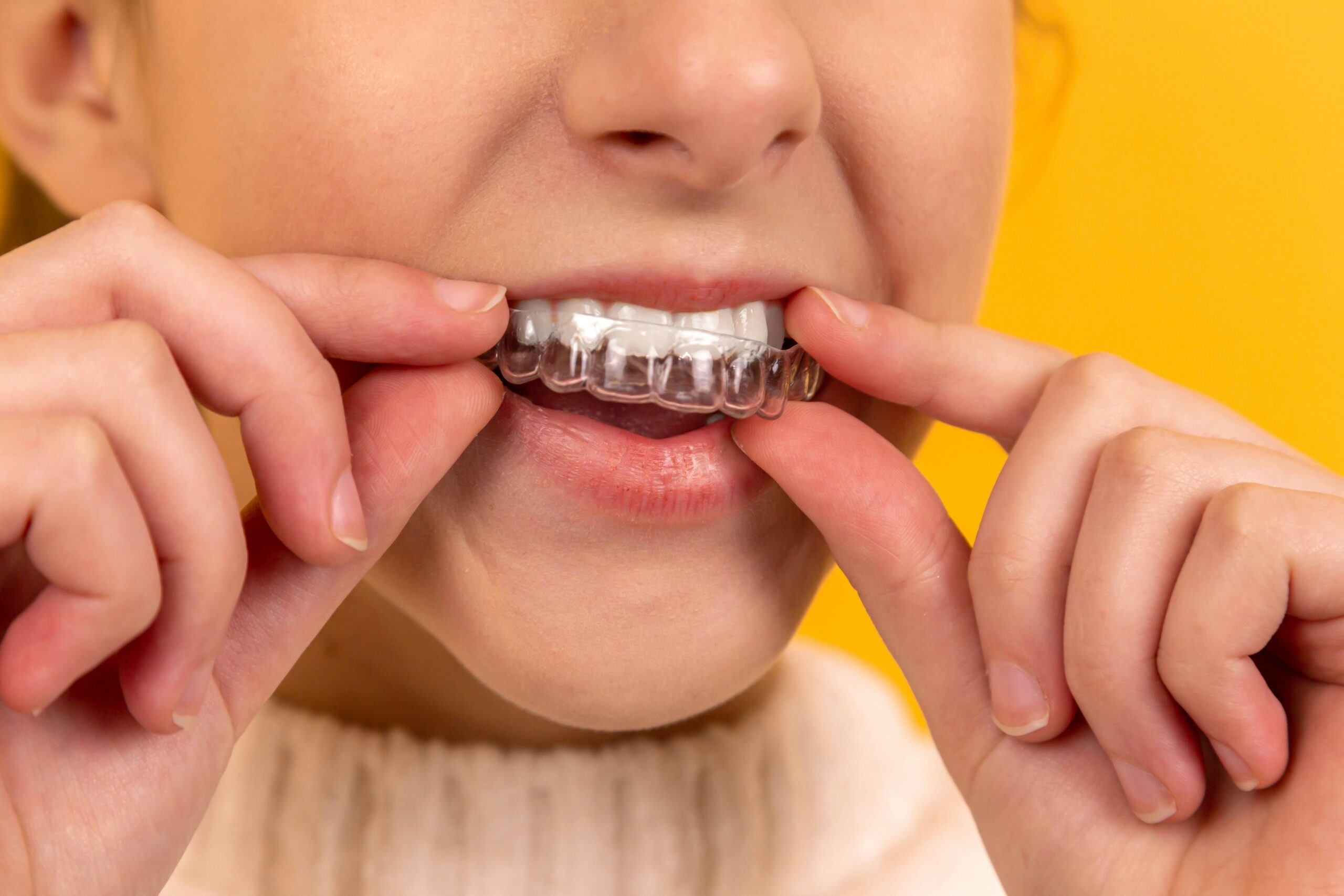Cleaning your retainer is essential for maintaining good oral hygiene and ensuring the longevity of the appliance. A clean retainer can prevent bad breath, plaque buildup, and potential oral infections. This comprehensive guide covers everything you need to know about cleaning retainers, from daily care to deep cleaning methods.
Introduction
A retainer is a vital orthodontic appliance used to maintain the alignment of your teeth after braces or other dental treatments. Like any other dental appliance, it requires regular cleaning to prevent bacterial buildup, bad odors, and potential oral health issues. This guide will provide you with detailed instructions on how to clean and maintain your retainer effectively.
Understanding Your Retainer
Types of Retainers
There are generally three types of retainers, each with specific care requirements:
- Hawley Retainers: Made from a combination of metal wires and acrylic. These are removable and durable.
- Clear Plastic Retainers (Essix): Made from clear plastic and fit snugly over your teeth. These are also removable but can be more prone to staining.
- Fixed/Bonded Retainers: Consist of a thin wire bonded to the back of the teeth. These are permanent and require careful cleaning around the wire.
Importance of Regular Cleaning
Cleaning your retainer regularly is crucial for several reasons:
- Prevent Plaque and Tartar: Just like your teeth, retainers can accumulate plaque and tartar.
- Avoid Bad Breath: Bacteria buildup on a dirty retainer can lead to bad breath.
- Maintain Oral Health: A clean retainer helps prevent infections and other oral health issues.
- Prolong Retainer Life: Regular cleaning and proper maintenance can extend the lifespan of your retainer.
Basic Cleaning Supplies
Essential Tools
To keep your retainer clean, you’ll need the following essential tools:
- Soft-Bristled Toothbrush: Used exclusively for cleaning your retainer.
- Mild Dish Soap or Non-Abrasive Toothpaste: For daily cleaning.
- Retainer Cleaning Solution: Specifically formulated for deep cleaning.
- Cool or Lukewarm Water: For rinsing and soaking.
Optional Tools
For more thorough cleaning, consider these optional tools:
- Ultrasonic Cleaner: Uses sound waves to clean your retainer deeply.
- Retainer Case: For safe storage when not in use.
- Effervescent Tablets: These can help in deep cleaning and deodorizing your retainer.
Daily Cleaning Routine
Rinsing After Removal
Rinse your retainer with cool or lukewarm water immediately after removing it from your mouth. This helps remove saliva and prevent plaque buildup.
Brushing Your Retainer
- Prepare the Brush: Use a soft-bristled toothbrush dedicated to your retainer.
- Apply Cleaner: Use a small amount of mild dish soap or non-abrasive toothpaste.
- Brush Gently: Gently brush all surfaces of the retainer, ensuring you reach all nooks and crannies.
- Rinse Thoroughly: Rinse with cool or lukewarm water to remove any soap or toothpaste residue.
Deep Cleaning Methods
Soaking Solutions
Soaking your retainer periodically helps to keep it free from bacteria and stains.
- Commercial Retainer Cleaners: Follow the instructions on the packaging for the best results.
- DIY Soaking Solution: Mix equal parts of white vinegar and water or use a hydrogen peroxide solution. Soak your retainer for about 15-20 minutes, then rinse thoroughly.
Using Ultrasonic Cleaners
Ultrasonic cleaners provide a deep clean by using high-frequency sound waves.
- Fill the Cleaner: Use water and a few drops of mild dish soap.
- Place the Retainer: Insert the retainer and turn on the cleaner.
- Run the Cycle: Follow the manufacturer’s instructions for duration.
- Rinse Thoroughly: Rinse the retainer with cool water after cleaning.
Professional Cleaning Services
For a thorough clean, consider professional cleaning services offered by your orthodontist or dentist.
- Schedule Regular Cleanings: Incorporate professional cleanings into your regular dental check-ups.
- Consult Your Orthodontist: Ask about the best cleaning methods for your specific retainer type.
Maintenance Tips
Proper Storage
Store your retainer in a case when not in use to protect it from damage and contamination.
- Use a Ventilated Case: This allows air circulation and prevents moisture buildup.
- Avoid Heat Exposure: Keep the case away from direct sunlight and heat sources, which can warp the retainer.
Avoiding Harmful Habits
- Don’t Use Hot Water: Hot water can warp and damage your retainer.
- Avoid Abrasive Cleaners: These can scratch and damage the surface.
- Don’t Eat or Drink with Retainer On: This can cause staining and bacterial buildup.
Troubleshooting Common Issues
Dealing with Stains
If your retainer develops stains:
- Use Baking Soda Paste: Mix baking soda with water to form a paste. Gently brush the retainer with this paste to remove stains.
- Soak in Vinegar Solution: Soak in a mixture of equal parts white vinegar and water for 15-20 minutes, then brush and rinse thoroughly.
Removing Odors
Persistent odors can be eliminated by:
- Soaking in Mouthwash: Dilute mouthwash with water and soak your retainer for about 10 minutes.
- Using Retainer Cleaning Tablets: These are specifically designed to deodorize and clean.
Addressing Damage
If your retainer is damaged:
- Consult Your Orthodontist: Do not attempt to fix it yourself. Bring it to your orthodontist for repairs or replacement.
- Handle with Care: Avoid dropping your retainer and handle it gently to prevent damage.
Special Considerations
Cleaning Different Types of Retainers
- Hawley Retainers: These can be cleaned with a toothbrush and mild soap, but avoid soaking in solutions that may affect the metal parts.
- Clear Plastic Retainers (Essix): These should be cleaned gently to avoid scratches. Soaking in a vinegar solution can help remove stains.
- Fixed/Bonded Retainers: Clean carefully around the wire using a floss threader or interdental brushes to remove plaque.
Handling Delicate Appliances
For delicate retainers:
- Use Soft Tools: Always use soft-bristled brushes and non-abrasive cleaners.
- Avoid Harsh Chemicals: Stick to mild soaps and approved cleaning solutions.
Myths and Misconceptions
- Myth: Boiling your retainer will clean it effectively.
- Fact: Boiling can warp and damage your retainer.
- Myth: Using bleach is safe for cleaning.
- Fact: Bleach can damage the retainer and is harmful if ingested.
- Myth: Retainers don’t need to be cleaned daily.
- Fact: Daily cleaning is essential to maintain oral hygiene and prevent bacterial buildup.
Additional FAQs
Can I use toothpaste to clean my retainer?
It’s best to use a non-abrasive toothpaste or mild dish soap. Regular toothpaste can be too abrasive and scratch the retainer.
How often should I deep clean my retainer?
Deep clean your retainer at least once a week in addition to daily cleaning.
Is it safe to use mouthwash to clean my retainer?
Diluted mouthwash can be used occasionally for deodorizing but should not replace regular cleaning methods.
What should I do if my retainer feels slimy?
A slimy retainer indicates bacterial buildup. Clean it thoroughly with mild soap and a toothbrush, and consider soaking in a cleaning solution.
Can I clean my retainer with baking soda?
Yes, baking soda can be used to remove stains and odors. Make a paste with water and gently brush the retainer.
How can I prevent my retainer from smelling bad?
Regular cleaning and proper storage are key. Use a ventilated case and clean your retainer daily.
Why does my retainer turn yellow?
Yellowing can be caused by plaque buildup or certain foods and drinks. Regular cleaning and avoiding colored beverages can help prevent this.
How do I know if my retainer is clean?
A clean retainer should not have visible plaque or stains and should feel smooth to the touch without any slime or odor.
Can I use a denture cleaner for my retainer?
Some denture cleaners are safe for retainers, but it’s best to use products specifically designed for retainers to avoid damage.
What should I do if I lose my retainer?
Contact your orthodontist immediately to get a replacement. Wearing your retainer as prescribed is crucial to maintaining your teeth alignment.
Can I soak my retainer overnight?
Soaking overnight is not necessary and can potentially damage the retainer if done too often. Limit soaking to 15-20 minutes for deep cleaning.
How do I clean a fixed retainer?
Use a floss threader or interdental brush to clean around the wire. Regular brushing and rinsing are also important.
Why does my retainer feel tight?
A tight retainer could indicate that your teeth have shifted slightly. Consult your orthodontist if this occurs.
Can I use hydrogen peroxide to clean my retainer?
Hydrogen peroxide can be used occasionally for deep cleaning but should be diluted with water.
What should I avoid when cleaning my retainer?
Avoid hot water, abrasive cleaners, and harsh chemicals like bleach. These can damage your retainer.
Can I use hand soap to clean my retainer?
Mild hand soap can be used if it is free from harsh chemicals and fragrances. Always rinse thoroughly after cleaning.
Is it okay to wear my retainer while eating?
No, wearing your retainer while eating can cause damage and increase the risk of bacterial buildup.
How do I clean my retainer case?
Wash your retainer case regularly with soap and water to prevent bacterial growth. Dry it thoroughly before use.
What should I do if my retainer cracks?
Do not attempt to repair it yourself. Contact your orthodontist for a replacement or professional repair.
Can I use apple cider vinegar to clean my retainer?
Diluted apple cider vinegar can be used occasionally, but it may have a strong taste. Rinse thoroughly after soaking.
How long does a retainer last?
With proper care, a retainer can last several years. However, it may need to be replaced if it shows signs of wear or damage.
Can I share my retainer cleaner with someone else?
No, retainers are personal dental appliances, and sharing cleaners can spread bacteria.
How do I clean a retainer with metal parts?
Use a soft brush and mild soap. Avoid soaking in solutions that could affect the metal parts.
Can I use tea tree oil to clean my retainer?
Tea tree oil is not recommended as it can be difficult to rinse off completely and may leave a residue.
What if I forget to clean my retainer for a few days?
Clean it thoroughly as soon as possible. If it has developed an odor or buildup, soak it in a cleaning solution.
How do I clean a retainer with calcium buildup?
Soak in a vinegar solution to dissolve the calcium, then brush gently and rinse thoroughly.
Can I clean my retainer with saltwater?
Saltwater can be used occasionally to disinfect, but it should not replace regular cleaning methods.
How do I travel with my retainer?
Use a ventilated case for storage and keep a small cleaning kit with a brush and cleaning solution for maintenance on the go.
What should I do if my retainer no longer fits?
Contact your orthodontist. Teeth can shift, and an ill-fitting retainer may need adjustment or replacement.
General Cleaning Questions
Can I use a toothbrush with hard bristles to clean my retainer?
No, always use a soft-bristled toothbrush to avoid scratching and damaging the surface of your retainer.
Is it safe to use dishwashing liquid to clean my retainer?
Yes, mild dishwashing liquid can be used to clean your retainer. Ensure it is thoroughly rinsed off afterward.
How do I know if a cleaning solution is too harsh for my retainer?
If a solution causes discoloration, warping, or leaves a strong chemical smell, it is likely too harsh. Stick to products designed for retainers.
Can I use antibacterial soap to clean my retainer?
Yes, as long as it is mild and non-scented. Rinse thoroughly to remove any soap residue.
Cleaning Frequency
How often should I clean my retainer case?
Clean your retainer case at least once a week to prevent bacteria buildup. Wash it with mild soap and water, then dry thoroughly.
Can I clean my retainer with mouthwash every day?
No, mouthwash contains alcohol which can damage the retainer over time. Use it occasionally, and always dilute with water.
How long should I soak my retainer in a cleaning solution?
Typically, soak your retainer for about 15-20 minutes. Follow the instructions on the cleaning product for best results.
Storage and Handling
What is the best way to store my retainer when not in use?
Store your retainer in a ventilated case to keep it dry and protected from damage. Avoid storing it in direct sunlight or extreme temperatures.
Can I leave my retainer soaking overnight?
It is generally not recommended to soak your retainer overnight as it may damage the material. Limit soaking to the recommended time.
Should I dry my retainer after cleaning it?
Yes, after rinsing your retainer, pat it dry with a clean towel before placing it in its case or back in your mouth.
Deep Cleaning
Is it necessary to deep clean my retainer even if I brush it daily?
Yes, deep cleaning once a week helps remove any buildup that daily brushing might miss, ensuring thorough cleanliness.
Can I use hydrogen peroxide to clean my retainer regularly?
Use hydrogen peroxide occasionally for deep cleaning, but not daily, as it can be harsh on the material over time.
Special Situations
How do I clean my retainer if I have a cold or flu?
Increase the frequency of cleaning and consider soaking it in an antibacterial solution to kill germs and prevent reinfection.
What should I do if my retainer has a weird taste after cleaning?
Rinse it thoroughly with water. If the taste persists, consider soaking it in a diluted mouthwash solution briefly, then rinse again.
Travel and On-the-Go Cleaning
How can I clean my retainer when traveling?
Carry a travel-sized retainer cleaning kit with a soft brush, mild soap, and a portable case. Use bottled water if tap water quality is uncertain.
Can I use bottled water to clean my retainer?
Yes, bottled water is safe for rinsing and soaking your retainer when you’re unsure about the quality of tap water.
Retainer Safety and Damage
What should I do if my retainer cracks while cleaning?
Stop using it and contact your orthodontist immediately for a replacement. A cracked retainer may not fit properly and could damage your teeth.
Can a damaged retainer be repaired at home?
No, do not attempt to repair a damaged retainer at home. Seek professional assistance from your orthodontist.
Enhancing Retainer Longevity
How can I make my retainer last longer?
Regular cleaning, proper storage, and avoiding exposure to extreme temperatures or harsh chemicals can prolong the life of your retainer.
What foods and drinks should I avoid with my retainer?
Avoid sticky, sugary, or hard foods, and beverages like coffee, tea, and soda that can stain or damage your retainer.
Miscellaneous
Can I use a water flosser to clean my fixed retainer?
Yes, a water flosser can help clean around a fixed retainer and remove food particles and plaque effectively.
Why does my retainer feel tighter after cleaning?
If your retainer feels tighter, it might be due to slight changes in your teeth alignment or the retainer material contracting slightly. Consult your orthodontist if the tightness persists.
Conclusion
Maintaining a clean retainer is crucial for your oral health and the longevity of the appliance. By following the steps outlined in this guide, you can ensure your retainer stays clean, odor-free, and in good condition.
Regular cleaning, proper storage, and avoiding harmful habits will help you get the most out of your retainer.



